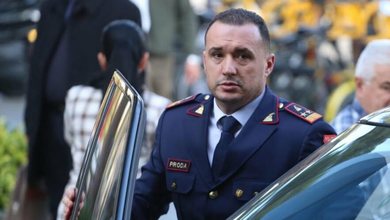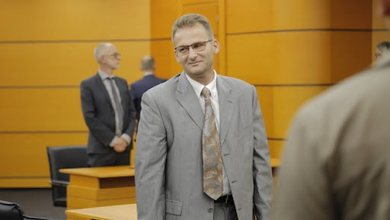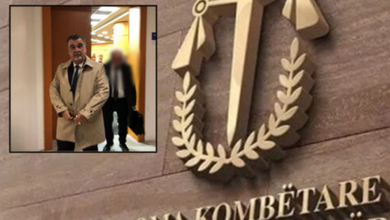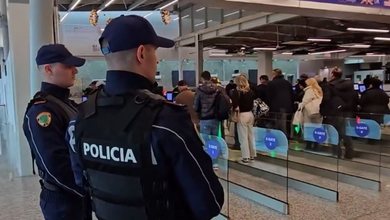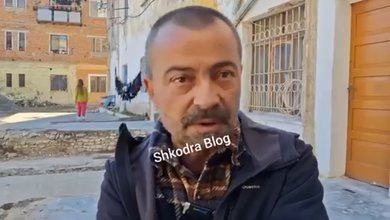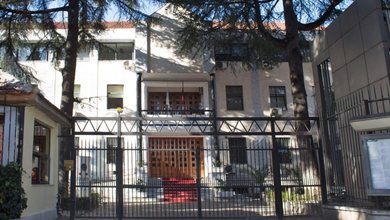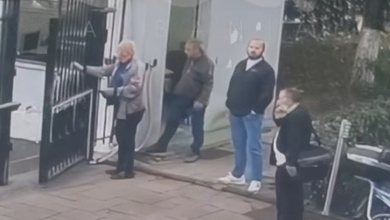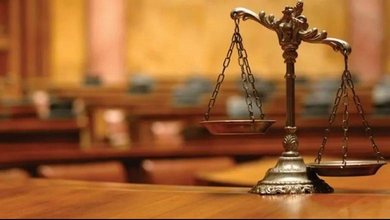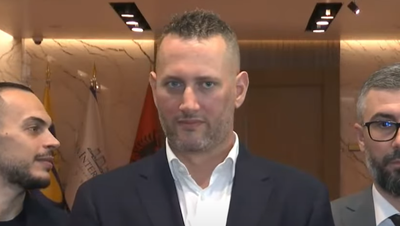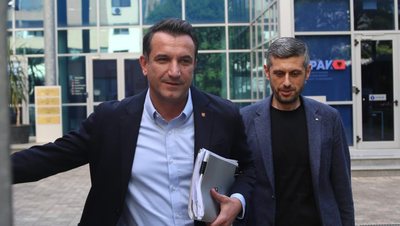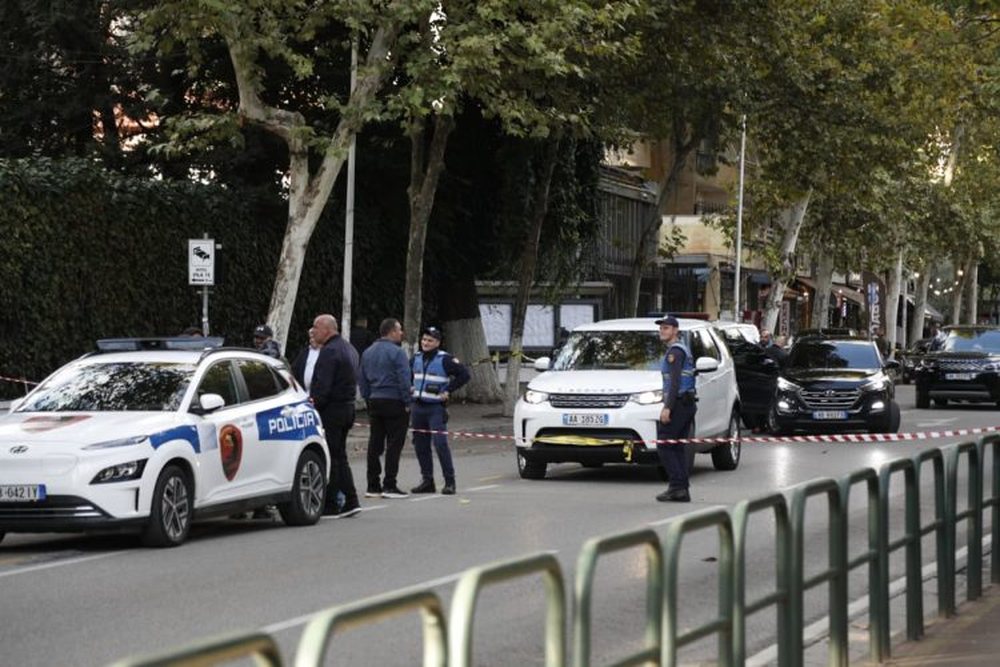
The murder of Judge Astrit Kalaja inside the courtroom at the Court of Appeal in Tirana on Monday afternoon has reopened the old debate about the lack of security conditions in the country's courts.
For two years, the Court of Appeal and the Court of Tirana have requested through the High Judicial Council an increase in the number of police officers to guarantee security in buildings and courtrooms by the State Police, but the requests have fallen on deaf ears, according to correspondence obtained by BIRN.
Documents obtained by BIRN also show that the State Police has refused to increase the number of police officers in court premises, even after concerns were raised that magistrates were facing ongoing threats.
Correspondence between the High Judicial Council and the State Police was exchanged in the period November-December 2023. Through the letters, the justice institutions expressed concerns that the service with only one police officer at the entrance to the court buildings is insufficient.
"In order to improve security in the courts to guarantee judicial processes, as well as for the life, health and rights of subjects who access the courtroom, the number of State Police officers should be increased in the premises of all courts and courtrooms during court sessions," the letter from the Supreme Court of Justice states.
The response from the State Police was negative.
"Currently, we find it impossible to increase and plan the number of police officers to secure the internal premises of the courts and during court hearings due to the limited number of police personnel to secure these premises," writes the former head of the State Police, Muhamet Rrumbullaku, in response.
The State Police is hiding behind a decision of the Council of Ministers of April 28, 2010, which limits the continuous guarding of state institutions by police forces, including court buildings.
According to the VKM, court buildings of all levels are guarded by State Police officers to ensure order and peace during court hearings.
But in implementation of this decision, the government has approved a limit of one police officer to guard each court during official hours. After official hours, the court buildings are protected by the “Illyrian Guard” – a state security company under the Ministry of Interior.
After the murder of Judge Kalaja, the head of the State Police, Ilir Proda, once again avoided responsibilities for guaranteeing security in the courts.
“The State Police is only responsible for guarding the facility, it has no competence for identity checks or physical checks of persons entering, much less in courtrooms,” Proda told BIRN.
"Even if 10 police officers are deployed to guard the facility, the State Police has no authority over this matter, because the VKM assigns it to the security personnel selected by the court administration," he added, emphasizing that "it is regrettable that they are trying to blame such a consequence on the police."
BIRN asked the Supreme Court of Kosovo whether it has made any further efforts to increase security conditions in court premises after 2023. Official sources from this institution confirmed that in recent years, requests for additional budget for security in courts have been made, but so far no positive response has been received.
Appeals Judge Astrit Kalaja was shot dead in the courtroom on Monday, October 6, after he announced the verdict in a case that had as its subject “objection to enforcement facilities”, related to a property conflict. Two other people were also injured. Police arrested the suspected perpetrator, Elvis Shkami, a few minutes after the incident. His uncle, Gjon Shkambi, 53, was also arrested as an accomplice in the murder. The Court of Appeals security officer, Banush Koxhaj, 63, was also arrested for abuse of office.
According to the official announcement of the Tirana Police, at 1:42 PM on Monday, Elvis Shkambi and his uncle, Gjon Shkambi, entered the public waiting room of the Court of Appeal and passed through the scanner one after the other. The presence of metals was signaled on the detector screen by flashing red lights, but the security officer, Banush Koxhaj, remained seated in a chair and did not perform any physical check of these citizens or register them in the protocol book.
In October 2023, the Court of Appeal also complained to the Supreme Court that security officers had not received any training in the performance of their duties and especially in the management of crisis or risk situations. /BIRN/


